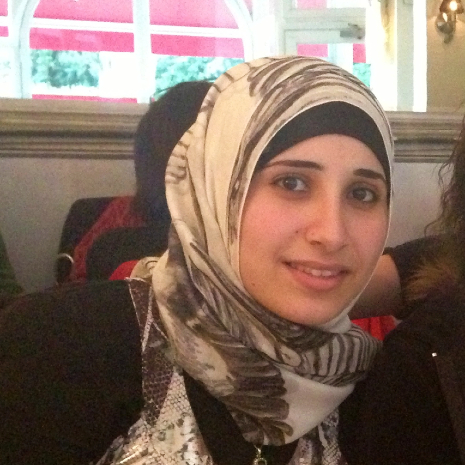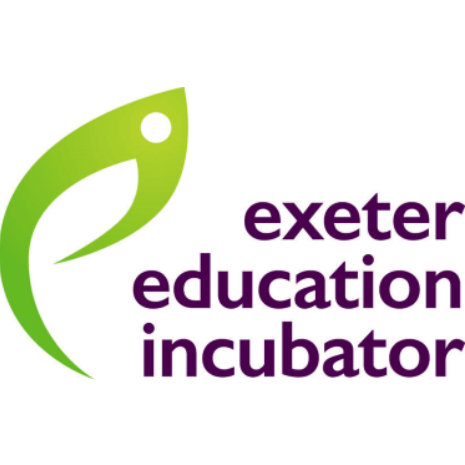Innovation Lab 2021
For 10 weeks (10th May – 16th July), we ran an Education Innovation Lab programme. The Lab was an innovative approach to developing education enhancements and brought together design tools and a strong emphasis on peer learning.
Staff- and student-led projects explored problems they were working to address within their institutional settings. Some of the projects addressed themes of research-based or community-engaged learning, funded by the Research and Impact Executive Group. Other projects were student-led anti-racism projects funded by the Provost Commission.
Projects shared their learning and outcomes in our blog and at our summer Incubator Café event in July 2021.
The Lab provided a model that supported participants to identify and test different possible solutions to problems that these projects have identified, as well as how to strategise for and build allies to bring about these changes at the University.
The Lab involved:
- a weekly practice-based online workshop;
- a weekly project coaching/supported network session;
- a project management support session;
- and one hour of asynchronous material.
You can learn more about these Education Innovation Lab projects below:
Sharlene Asmah, Herbie Mensuoh, Jennifer Mellot, Asha Abdi, and Yasmine Fosu
Following the Decolonising the Curriculum Departmental Review, which was pioneered by Exeter students on the Penryn Campus, the aim of this Student-Led Anti-Racism project will primarily be to continue what was started and put one of the recommendations made by the students into practice.
The recommendation that we will be focussing on will be Recommendation 1: Address the under-representation of BAME authors by reviewing the current reading list of each module to reflect a broader perspective.
We will be addressing this recommendation by actively adding suitable BAME authors to our reading lists. In doing so we aim to see a 30% increase in the number of BAME authors that we see on our reading lists. As we cannot decolonise the whole Politics Penryn reading list in the time frame we have, we will begin by using 3 second year modules in the Politics and International Relations course and ensuring that at least 3 BAME authors will be included in all 11 weeks that are in a term, this would mean that there will be just under 100 (99) BAME authors seen in the 3 modules we decide to work on.
Achieving this will be great start to decolonising the curriculum as it will enable students to explore and reference different cultural histories and narratives in their work. Additionally, it would increase a sense of belonging within the university and ultimately contribute to the work of closing awarding gaps. This is in the hopes that we can decolonise and diversify the whole Politics and International Relations course in the near future so other departments and courses will consider following suit.
We will also be working on how we can develop building an anti-racist classroom further as we believe this is also a valuable addition to this project in decolonising the curriculum.
Mengya Zhao and Tom Lewis
The project aims to address the risk factors of mental health in minority postgraduate research (PGR) student groups. PGR students are known to suffer from mental health problems such as depression, anxiety and stress. These mental health problems are well documented as being more prevalent for BAME PGRs and other international PGRs. Those with a different cultural identity in predominately white institutions face various barriers and a range of racial stressors across many different roles, environments, and contextual settings (e.g., supervision, teaching, researching). These barriers and racial stressors can lead to a low sense of belongingness. Aside from these cultural and racial factors that ethnic minority PGRs experience, all PGRs experience a variety of issues such as issues in their supervisor-PGR relationships, balancing work and family, financial issues, and a lack of social support during training, which possibly contribute to the widespread poor mental health in this group. Identifying these issues and resolving them would be ideal for all PGRs.
Rhianna Garrett, Nina Cunningham and Manan Shah
The project ‘Active Together’ joins the Innovation Lab from the first set of Student-Led Anti-Racism projects. Its aim is to create long-lasting positive effects on the way Exeter students approach discussions about racial diversity within sports societies. We urge the student body to recognise both aggressions and daily microaggressions towards students of colour and no longer accept silence as an option. Our mains goals are to provide compulsory diversity training for AU/Guild staff members, create sports inclusivity badges that establish a zero-tolerance policy on all forms of racism to provide safe spaces and promote the voices of students of colour in both sports societies and the university campus. It is essential to make students feel supported and secure when participating in activities that are so crucial to students physical and mental wellbeing.
Tia Matt and Abi Dymond
The Law School set up a Community Justice Hub, which includes a Policy Clinic for students studying Law, Criminology, and other disciplines to work on research briefs set by external organisations. The Policy Clinic is based in the Law School, but utilises an interdisciplinary approach to develop and implement innovation in justice and tackle justice-related policy challenges through student-designed and led projects.
For our Incubator project, we will be working directly with CASS+ (Community Advice and Support Services), a local charity that works alongside courts in Devon and Cornwall to support offenders and victims. One of the aims of CASS+ is to connect courts with communities and vice versa. Courts rarely know what has happened to a person after their hearing, but this project could help to create a voice for those who experience Criminal Justice, most especially those who receive low-level disposals and are not included in Criminal Justice statistics collated by public sector partners.
The opportunity to develop the work being done with CASS+ has potential for social impact but would also be a good learning opportunity for students. Students would be able to explore how the law affects people in their daily lives and be able to develop strategies that might be used to challenge structural forms of injustice experienced within the local community. There are wider systems in communities that are failing not because of staff inefficiencies but due to broader political and economic factors, too. Improved collaboration between services will show more creative thinking and better use across budgets which are stretched within every sector and University involvement will draw from a richer and independent platform of learning which could influence local and national thinking.
Maria Rosaria Marsico
South Devon UTC is one of 48 UTC’s across the UK. The “U” in UTC represents the University connection. The partnership with Exeter University has raised the profile of the UTC and has inspired young people who have a technical and academic leaning to consider study at the university.
A small number of students opt to study degree-level apprenticeships and UTC student body is leaning more towards this pathway to employment. It is intended that the collaboration with the university will strengthen the connection with young people and their families in order that they have an insight into the value of Higher Education and the pathways offered that will help them to achieve rewarding and fulfilling careers.
Layal Hakim, John Bruun, Caitlin Kight, Tina Verhaeghe, Beth Pitcher, Corrina Cory, Avalon Cory, Houry Melkonian, Barrie Cooper, Sharon Strawbridge, and Helen Smith
STEM certainly has a long way to go when it comes to decolonising the curriculum. Yet, maths, medicine and IT have a long history dating back to the explorations of those less represented in the current STEM world such as from Africa, the Arabs and Persians, East and South-East Asia, and renowned women scientists. How we decolonise the curriculum in STEM is not just about using the right language in lecture notes to support inclusivity and diversity, it is also about increasing awareness. This project involves a team of academic staff within all departments in CEMPS, and those researching in Decolonisation across the university, to further research about how to decolonise the curriculum within CEMPS departments and to develop five such worked STEM case studies on this topic. This collaboration across the leads and sandpit participants will come up with plans and ideas, as well as a list of specific topic titles that can be explored further as mini case-study research projects. The team will work with students as co-researchers where each student will explore one of the titles in-depth, with the aim of writing a blog/report and an end-of-project presentation as part of an online symposium. The output of the teams’ work done in the project will also lead to a guide on useful ways to decolonize STEM, and common misconceptions, which will be made available as part of existing archives in the university on decolonizing the curriculum.
Angelica Bas Gomez, Elizabeth De Lusignan, Hazel Mycroft, and Helen Foster-Collins
TW: Sexual assault, sexual harassment
Our Education Incubator project 'Consent Culture' is based on the current university approach towards education around sexual assault and the different ways of reporting sexual harassment. An investigation by UN Women UK found that 97% of women aged 18-24 have been sexually harassed, the main reasons for not reporting those situations being the belief that the incident is not serious enough to report and that reporting would not change anything. Based on this research, it is likely that most female students experience or have experienced sexual harassment at some point during their time at university and may have not reported it due to the reasons stated above. It is these key points that we will be addressing in our project.
We believe that a crucial part of preventing these incidents is through education about consent, which is currently not fully integrated into university education. The current University Formal Reporting systems are not designed for minor incidents, leading to many people not reporting these incidents and the perpetrator not being identified in order to be educated and if necessary disciplined.
Our main goal is to make the victims feel supported and listened to when they choose to report. We hope that the combination of education programs and the introduction of a new reporting system will encourage more people to report these incidents when they occur and hopefully reduce the number of re-offenders.
Christine Robins
Many North American universities use the term ‘service learning’ to describe learning where the experiential element outside the classroom consists of work that serves the community and which is then reflected upon. The designator ‘service learning’ is given to courses that fulfil certain criteria and is often presided over by a university-wide board. There is a substantial body of academic work on the impact of such learning. Exeter offers modules across many departments which provide project-based learning through substantial engagement with outside communities (e.g. Law’s Pro Bono offers; SML3042 ‘Transcultural Devon’; my own Oral History module) alongside other modules (e.g. language teaching) which engage more obliquely with communities and might be called ‘hands-on’ or ‘experiential’ rather than ‘service learning’. There are strategic questions here. Should our community-facing modules be more numerous and evenly distributed for maximum benefit to our students and our communities? Could more of these modules increase wellbeing and/or employability? Could this be relevant for how we are ‘a university for Devon and Cornwall’? Might we consider using ‘service learning’ as a course category, maybe even a designator, like ‘study abroad’ to be put on degree certificates?
As a first step, I seek to:
- Map out our offers of such modules, at least across HASS
- Begin a conversation between convenors about pedagogy and wider strategies in community-facing modules, with a view to creating a convenors’ network and planning a workshop to share good practice and plan dissemination
- Seek examples of practice and outcomes from students and community members
- Evaluate the existing ‘service learning’ toolkits in the academic literature and, in consultation with colleagues, devise a toolkit for potential convenors here.
Lisa Harris and Rose Leach
This project will explore ways to engage students more actively in both asynchronous and real-time settings through a structured process of tutor and peer mentoring throughout a term 3 PGT module.
The level of engagement by students has been mixed in online modules this year. Those who either don’t attend classes or who attend without participating, are more likely to produce rushed, superficial work and end up with poor or average results. Large class sizes make it easy to “hide at the back” or avoid attendance altogether. The problem of low participation is not a new one, but the digital environment makes absence/lack of contribution more obvious than in a traditional classroom. Tutor attention often has to focus on encouraging the unprepared/uninterested, so the small number of engaged students have limited opportunities for feedback in such sessions. They tend to lose interest and stop attending too. Consequently, many students are not prepared to perform effectively in job interviews or the workplace more generally, where employers increasingly seek people with good digital communication and collaboration skills.
Redesigning the real-time sessions and assessment structure to incorporate a mentoring and collaboration aspect will hopefully lead to better quality assessed work across the whole cohort, positive student feedback, and a reduction in numbers who would otherwise “slip through the net” if left to their own devices. It will also provide opportunities for good students to stretch themselves and acquire additional employability and digital skills by mentoring others. Involving engaged students as partners in the mentoring process provides scalability with the large student groups that are becoming the norm. In addition, peer mentors have a level of credibility with their cohort that tutors may lack.
The project team will collect feedback from tutors and students at the end of the module, and will be written up for publication as a case study of innovative teaching and learning that can inform pedagogical decisions for next year more widely.
To learn more about these projects and the Innovation Lab, or if you have any questions about future funding opportunities, please email the Incubator on educationincubator@exeter.ac.uk.


































